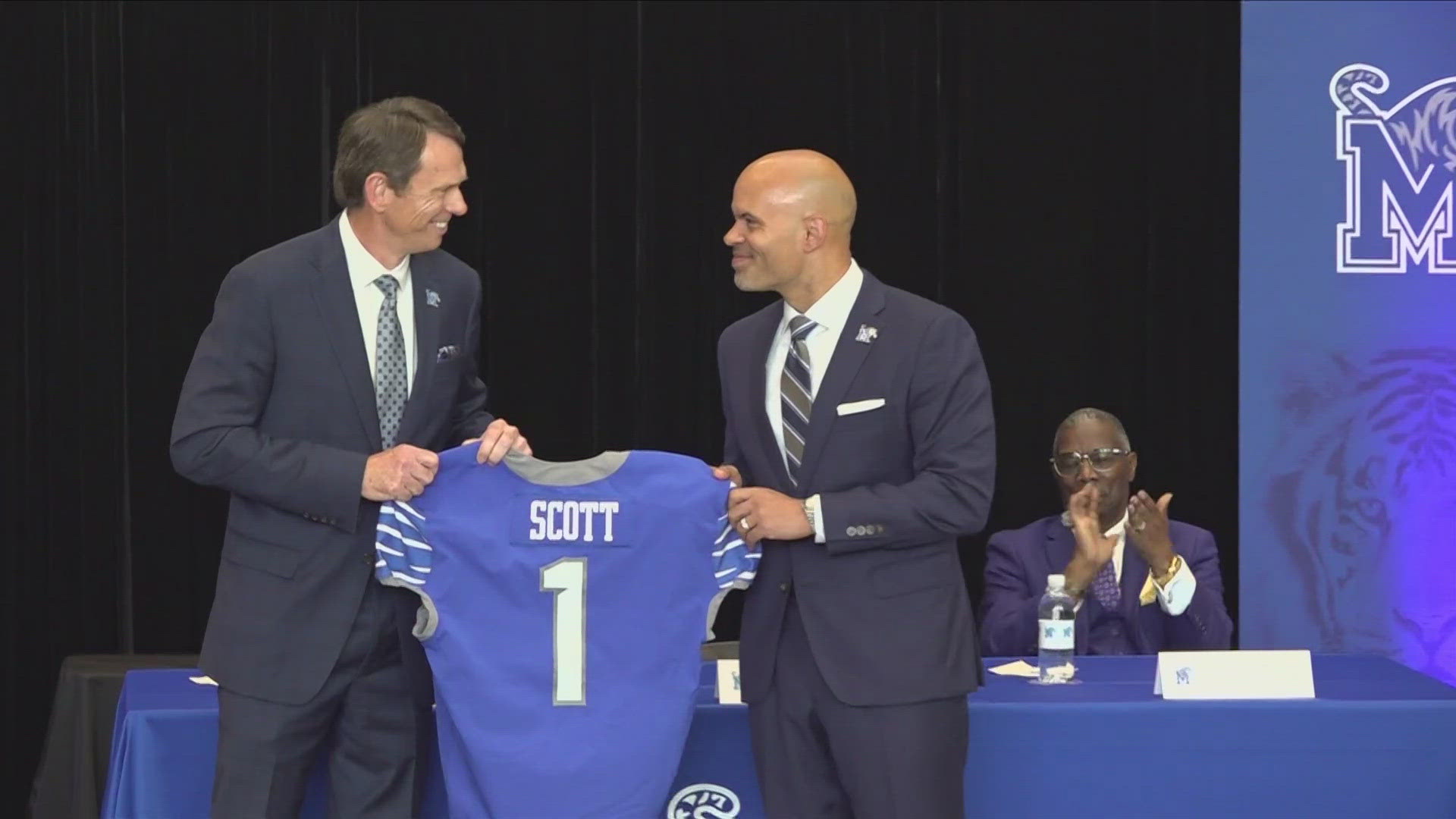MEMPHIS, Tenn. — On Thursday, Memphis Athletic Director Dr. Ed Scott spoke about the school's decision to turn down the Pac-12's offer to join the conference and therefore stay in the American Athletic Conference.
In a roughly 25-minute press conference, Scott said he took a three-pronged approach to the decision: the financial impact on the university, the emotional toll on the fans and what the future looks like. With those three keys in mind, Scott made the decision to reject the Pac and remain in the AAC, but he made it clear that doesn't mean it's the Tigers forever home.
"That was not a 'No, we're not ever going anywhere', that was based on the offer that was presented in front of us because we don't think less of ourselves," Scott said. "Sometimes, we get enamored by the new and want to take a bad deal, and that deal was not a good deal for the University of Memphis, it certainly wasn't a good deal for our athletic department, and most importantly, it wasn't a good deal for our Olympic sports."
That official deal first came across Scott's desk on Monday, and he and the university had just hours to make a decision. It was the same for other American schools like Tulane, South Florida and UTSA. All four of the schools declined the offer, in large part for Memphis because the financials just weren't there.
As a precedent set by SMU, Memphis would have to pay $25 million to leave the American. Scott confirmed on Thursday the Pac-12 offered to cover $2.5 million of that, which leaves a pretty heft gap of $22.5 million.
With no TV right deal locked in for the new-look Pac-12, Scott estimates Memphis would net an additional $500,000 in revenue.
But money was just one issue. Scott also looked at the minimum 20,000 miles projected Tiger teams would travel to compete with the current members of the Pac-12.
"I don't know any coach in our portfolio that thought us making that move was going to put them in a better position to recruit or get in the postseason right now," Scott said.
Since day one of his tenure, Scott has made it clear his and Memphis' ultimate goal is to compete against the best, and he knows after being snubbed several times by power conferences, that's all fans want too.
"Emotionally, I understand why people are upset," Scott said. "If you really cared about Memphis, you'd be supporting us now. When I hear people say, 'I'm not going to buy tickets ,and I'm not going to support the programs,' you're not really hurting me, you're hurting the student athletes and the people that are on the field playing."
In five to six years, Scott said almost all of the major media rights deals with conferences will be up, which could change the landscape all over again. Whether Memphis makes its move then or earlier, Scott plans to be ready.
"I'm not hoping for anything; I'm going out trying to earn something," Scott said.
Scott said the University didn't have time to counter with the Pac-12, which is the only conference that has officially offered since Scott took over less than two months ago.
Scott said if he gets a call from the Pac or any other conference again, he'll pick up the phone and listen.
Scott also said if the offer from the Pac-12 was good enough, he would have left even if other American schools like UTSA, South Florida and Tulane decided to stay in the AAC.
It's also important to note Memphis wasn't offered any extra incentive from the American to stay put.

